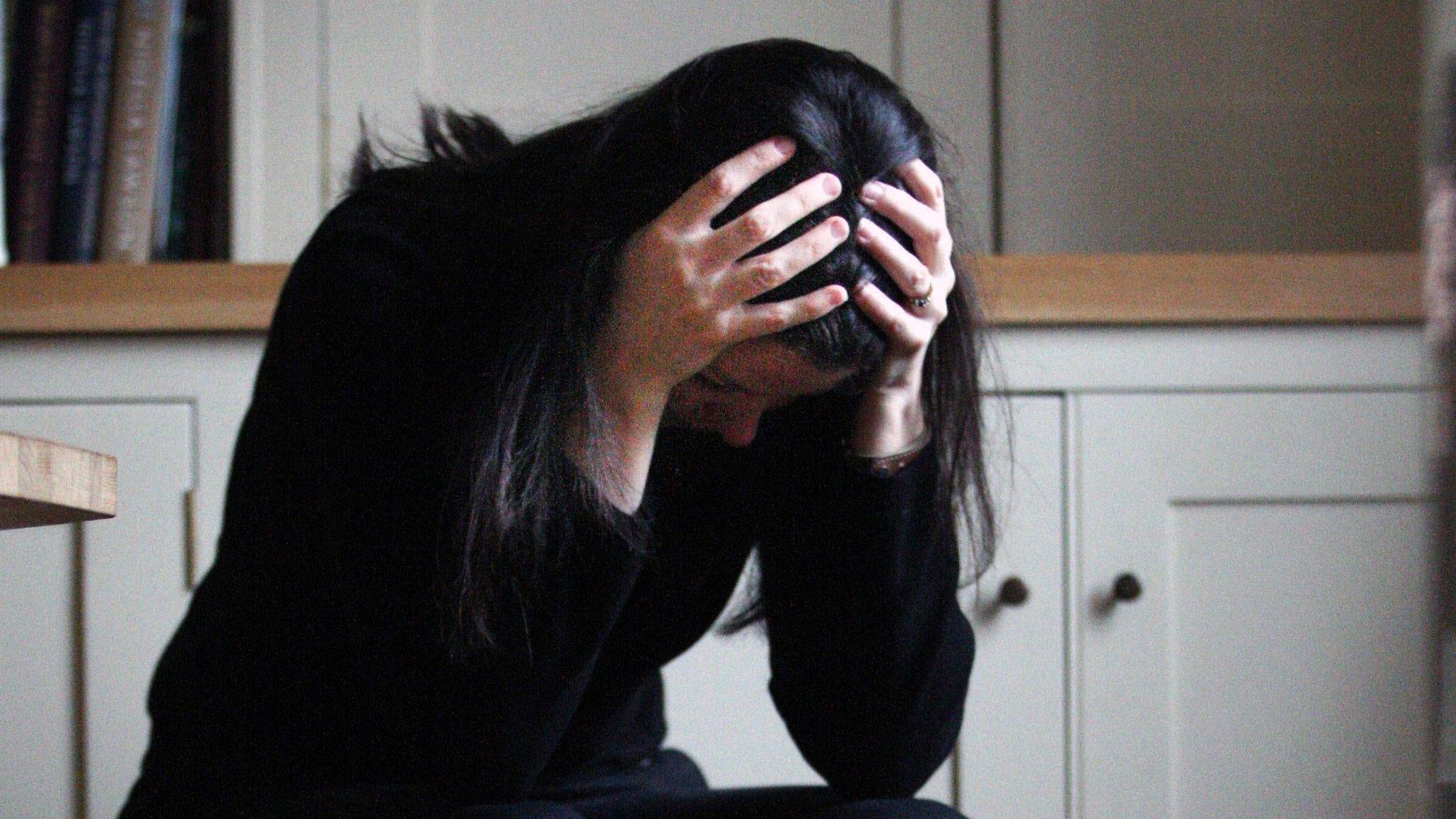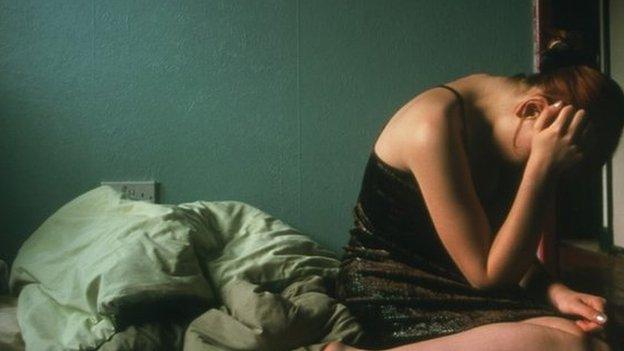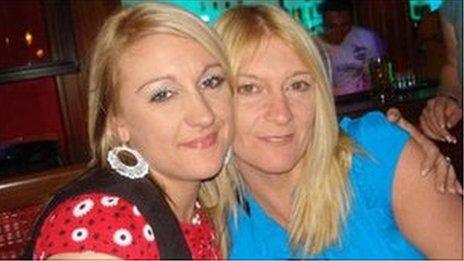New domestic abuse law comes into force
- Published

The abuse covered by the new offence could include a pattern of threats, humiliation and intimidation, the CPS said
Domestic abusers who control victims via social media or spy on them online could face up to five years in prison under a new law which is now in force.
The legislation will target those who subject spouses, partners and family members to psychological and emotional torment but stop short of violence.
It paves the way for charges in cases where there is evidence of repeated "controlling or coercive behaviour".
The Women's Aid charity said it was a "landmark moment" in tackling abuse.
The new law, external, brought into force in England and Wales, follows a Home Office consultation in which 85% of participants said the existing law did not provide sufficient protection.
It comes as Citizens Advice published figures showing a 24% rise, external in those seeking advice for domestic abuse.
'Limit human rights'
The Crown Prosecution Service said the type of abuse covered by the new offence could include a pattern of threats, humiliation and intimidation.
It could also involve stopping someone from socialising, controlling their social media accounts, surveillance through apps and dictating what they wear.
Alison Saunders, the director of public prosecutions, said: "Controlling or coercive behaviour can limit victims' basic human rights, such as their freedom of movement and their independence.
"This behaviour can be incredibly harmful in an abusive relationship where one person holds more power than the other, even if on the face of it this behaviour might seem playful, innocuous or loving.
"Victims can be frightened of the repercussions of not abiding by someone else's rules. Often they fear that violence will be used against them, or suffer from extreme psychological and emotional abuse.
"These new powers mean this behaviour, which is particularly relevant to cases of domestic abuse, can now be prosecuted in its own right."

Analysis
BBC legal correspondent Clive Coleman
Where do the normal power dynamics of a relationship end and "coercive or controlling" behaviour begin?
The new offence criminalises patterns of such behaviour against an intimate partner or family member.
Critical to the offence is the repeated or continuous nature of the conduct and the ability of a reasonable person to appreciate that the behaviour will have a serious effect on its victim.
A defence is also included to provide a further safeguard against inappropriate use of the new offence.
It will apply where the defendant can show that they believed they were acting in the victim's best interests and that their behaviour was objectively reasonable.
An example might be someone caring for a mentally ill spouse, who has to keep them in the home and make them take medication for their own protection or in their own best interests.
Here, the spouse's behaviour might be considered controlling, but would be reasonable in the circumstances.

Cases will be heard in magistrates' or crown courts and evidence could potentially include emails and bank records.
In order for the offence to apply, the pattern of behaviour alleged must have a "serious effect" on the victim, Home Office guidance says.
This means they must have either feared violence will be used against them on at least two occasions or they have been caused serious alarm or distress which has a "substantial adverse effect" on their usual day-to-day activities.
David Tucker, from the College of Policing, said the new offence of coercive control presented "challenges" but provided an opportunity to make victims and potential victims of serious assaults safer.
- Published15 December 2015

- Published18 December 2014

- Published21 September 2015

- Published8 July 2015

- Published22 May 2014
